Last night at the Senior Center, the city staff introduced its conceptual plans for implementing the design changes to the roadway and then sought public feedback on a variety of elements.
In the east bound direction the key changes begin at A Street where the lanes become split with one lane clearly market as the lane to continue east, the second lane becoming a dedicated turn lane to turn south onto B Street and a bike lane.
B Street is crucial to the change as the right lane becomes a turn lane and the left lane becomes the straight east bound lane that takes one through the intersection.
Both the intersection at A and B Streets have separate lights for bicyclists. One of my early concerns here is whether these will all become long and protracted signals just like the ones right now at the F Street and G Street intersections along the corridor. The key will be the ability of these intersections to keep traffic moving and having additional bike signals may slow it down. There are dedicated bike signals on Russell and Sycamore but that is not a four way intersection.
F and G Street will not have new 8-phase traffic signals which includes a dedicated left turn lane at all approaches and they too will have bicycle lane signals. Again a key will be the ability of the new system to prevent the kind of delays that the current signals have.
There will be enhanced pedestrian crossing at J Street with flashing beacon, in-ground crosswalk lights.
L St will be the transition for both the east bound traffic, as it merges back to the existing four lane travel configuration. Given the current configuration, it will probably be fairly similar since right now the left lane become a dedicated turn lane and the right lane branches into two lanes immediately to the east of L St.
In the west bound direction, the opposite will occur, with one lane turning left as it does now, the elimination of the right lane the goes straight and instead it will become a dedicated turn lane with one lane continuing westbound into the corridor.
A Street marks the transition in the west bound direction back to four lanes, with a single lane splitting into two as one heads to the west.
During the course of the workshop, I overheard a lot of questions about the necessity of this change. For me, there are a number of concerns including the problematic nature of the current design which causes poor traffic flow, and chaos of people swapping lanes which has contributed to accidents, and of course the illogic of a major thoroughfare in the bicycling capital of the world not having bike lanes.
An eastbound bicyclist approaching B St has three options, they can head south to Third Street and cut through downtown, they can head three blocks north to 8th Street and bypass downtown, or they can brave the road through and either drive on the edge and hope to not get hit or as many do, bike on the sidewalk even though its illegal. The fact is, few bicyclists want to have to bike four to six blocks (both ways) out of their way.
But the primary issue here is safety. Steve Tracy has compiled six years of traffic accident data from the city.
This year alone, there have been 41 accidents on the 5th St corridor which represents 13% of the citywide accidents this year which number 322. If you look at the chart, you can see immediately that the signal timing change at the intersections of 5th and F Street and G Street did result in a reduction of accidents on the corridor both in terms of absolute number and in terms of percentage of citywide accidents.
From 2004 to 2006 must have marked a number of these kinds of changes because overall accidents dropped rather dramatically citywide from 610 in 2004, to 539 in 2005, and then since then, the numbers have been in the 300s. (Remember that for this year, the total is through October 31, that puts this year on pace for about 375, about where it’s been the last four years).
For whatever reason, in addition to 41 accidents, the highest total since 2005 on the corridor, there have been more injury accidents this year than any year since 2004 and with two months left, this might become the most injury accidents on the corridor in the six years of data that are collected and assembled here.
One big problem that this configuration would alleviate is the number of accidents which involve a bicycle or a pedestrian. The typical year has seen around a quarter of all accidents involving a bike or pedestrian, but last year saw 27% and this year has seen nearly 40%. Again, not sure what would account for the increase, but as nearly every accident involving a bike or pedestrian results in an injury (for obvious reasons), this is an area of concern. This year, of the 16 accidents involving people not in cars, only one has avoided an ambulance ride to the hospital.
One question I think that should be asked in addition to the fifth street diet, which will take time to figure out conceptually, to engineer properly, and to build, is whether steps can be taken with the existing structure to prevent these kinds of injury accidents. There must be ways to reduce the number injury accidents in the interim.
—David M. Greenwald reporting

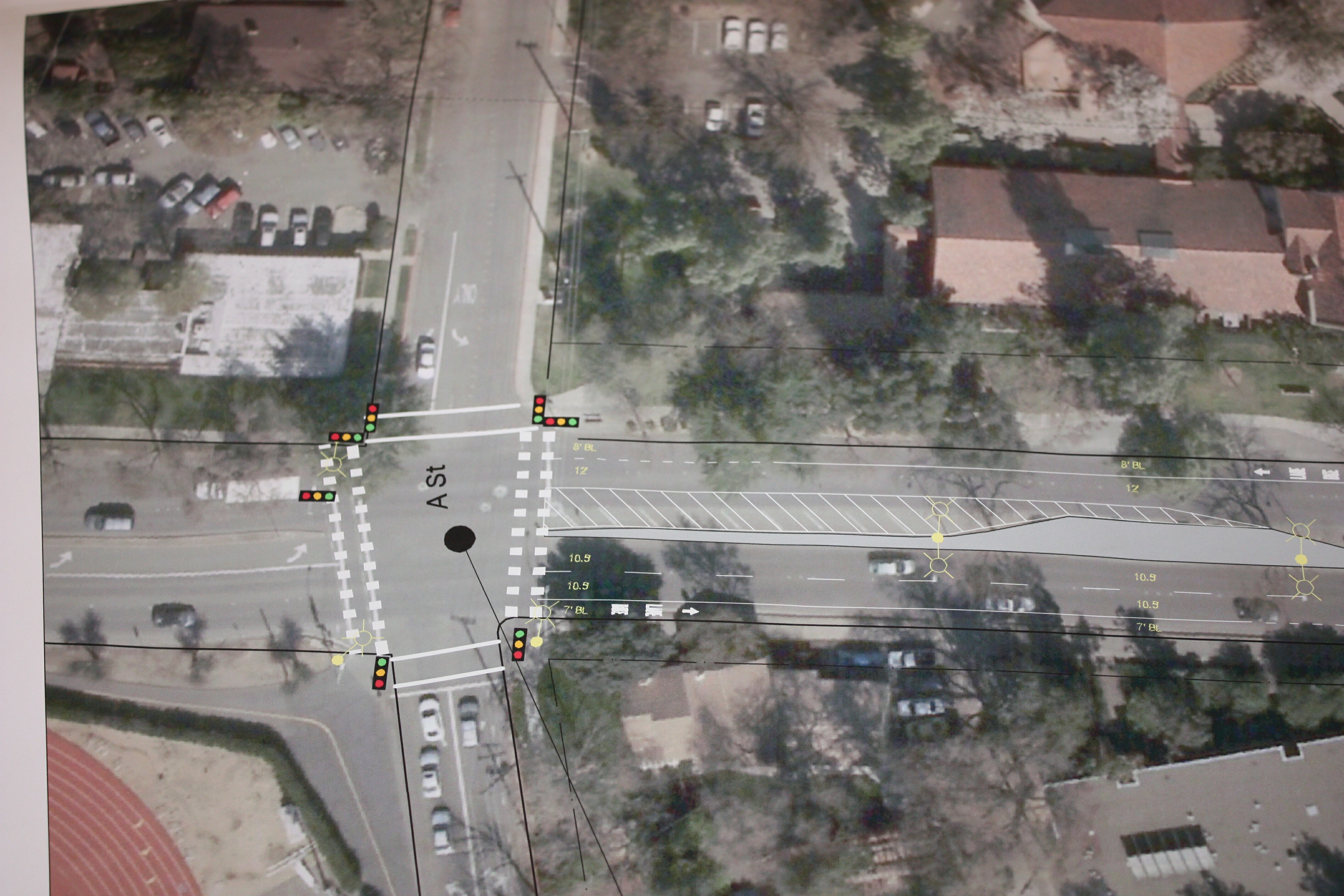
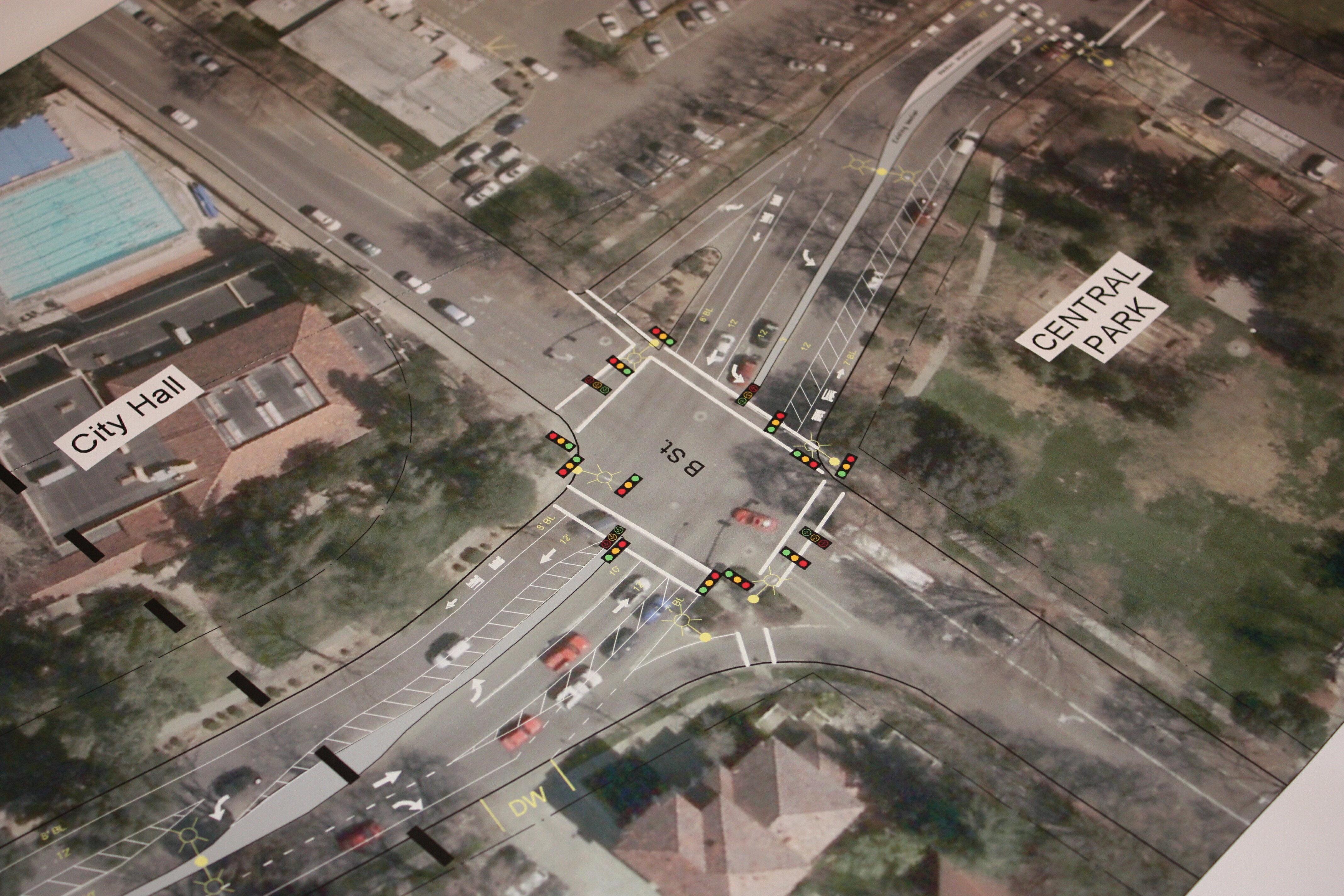
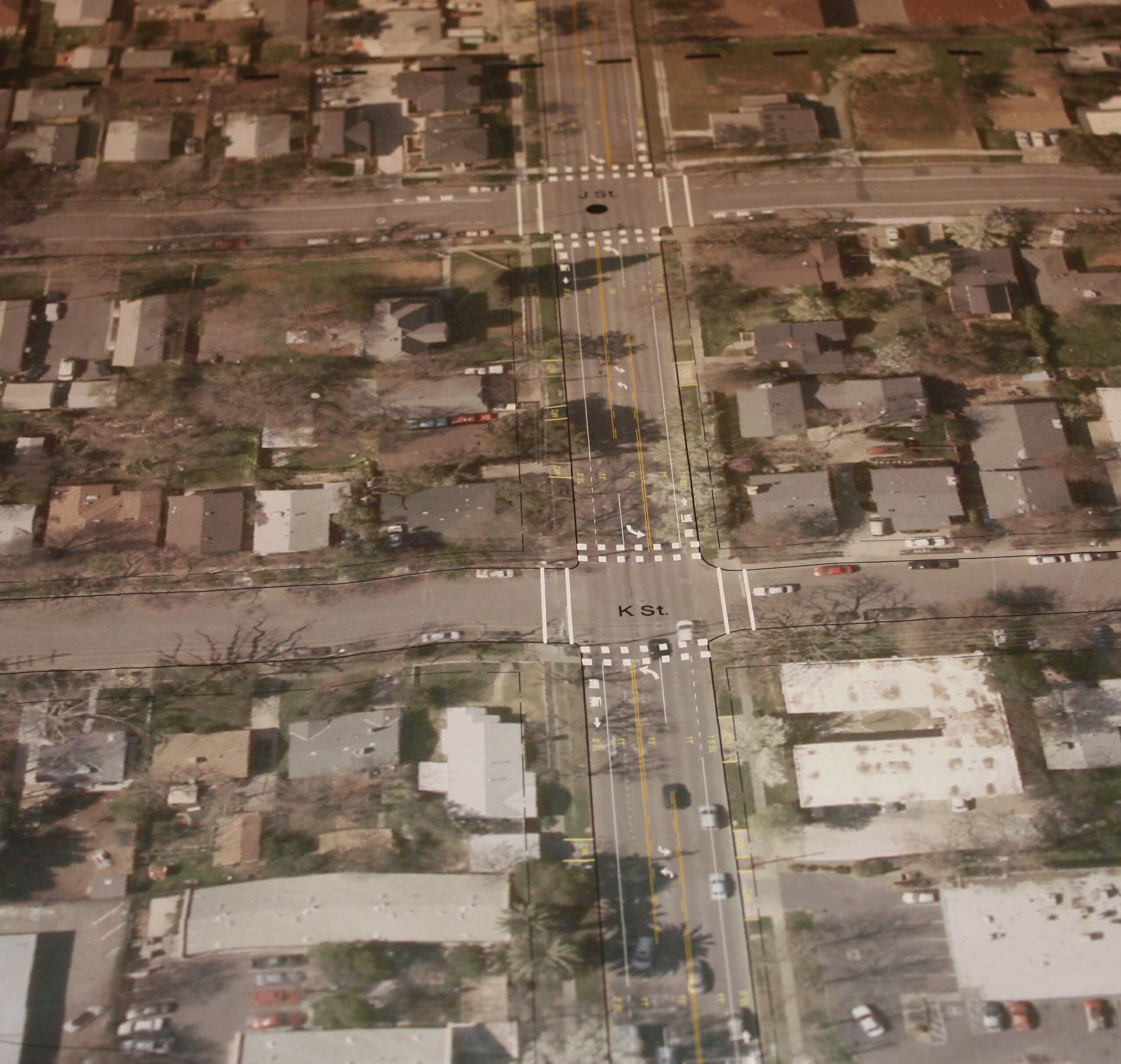
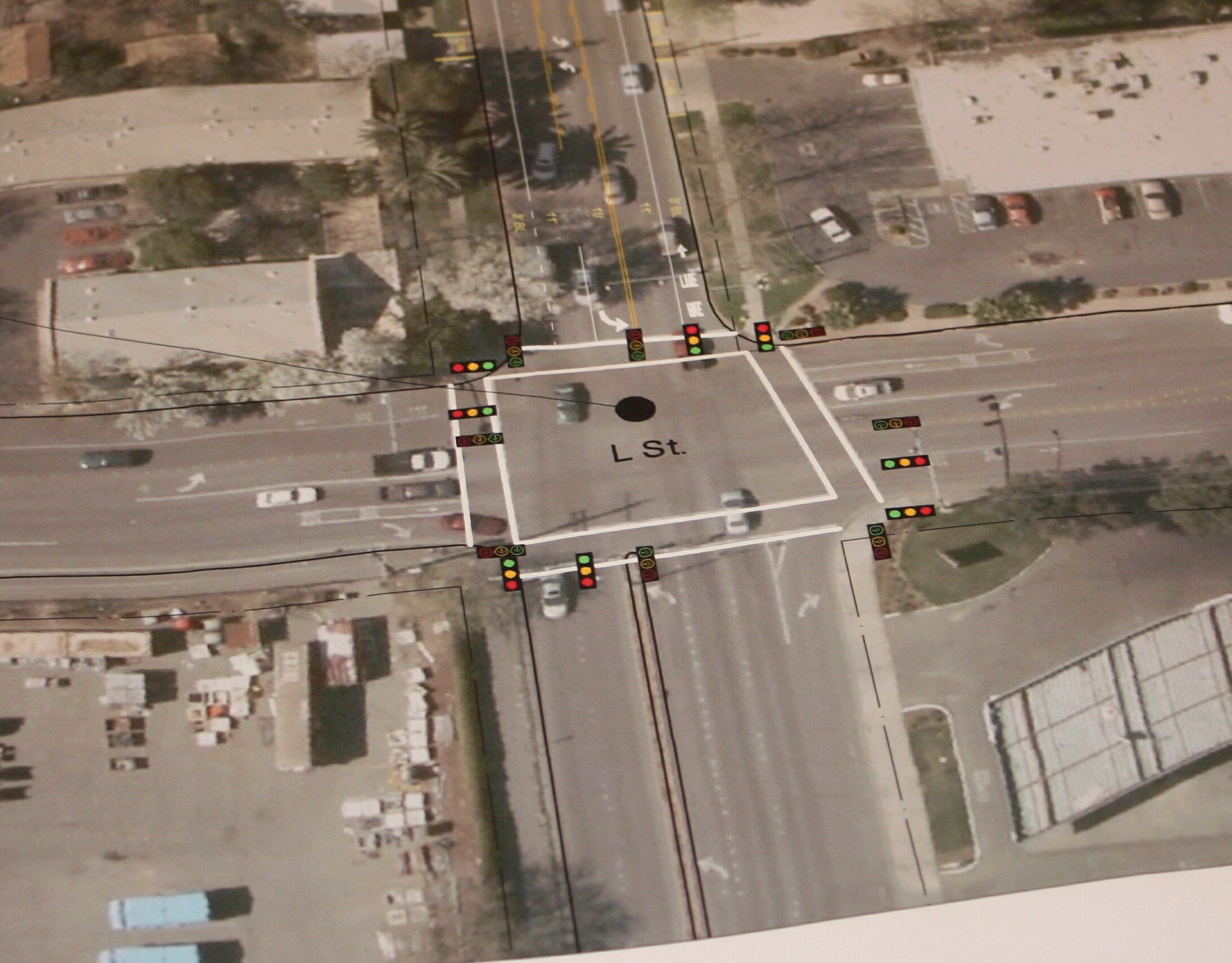
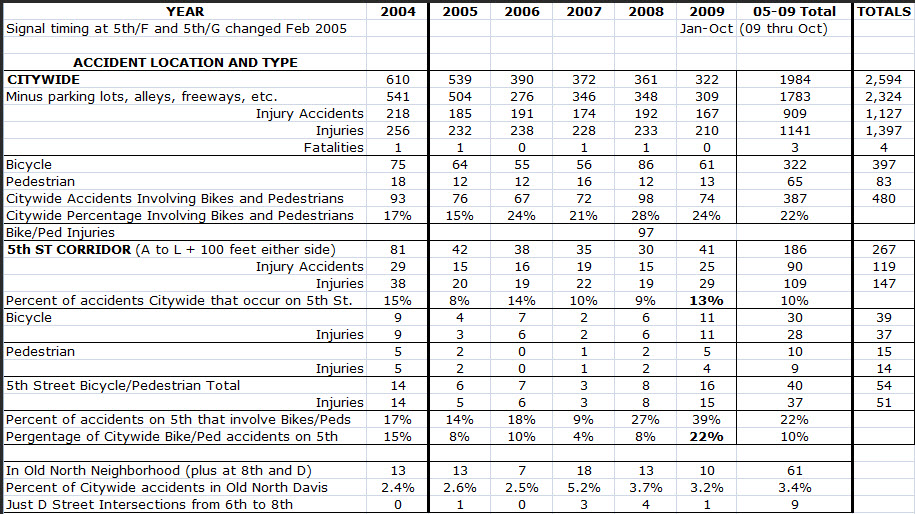

Leave 5th St. alone, I feel the current configuration has worked the beast.
best
“Beast” is correct. And the number of comments on this thread shows how little people care about alternative transportation.
I was at the workshop, and heard several people say, “They’ve got 3rd and 8th Streets…what more do they need?”
OK, let’s partition the town – car drivers can choose the streets they want to use, as long as 20% of all streets are dedicated to cyclists. Fair? Absolutely. If you want to keep cyclists off certain streets, then cyclists have the right to keep cars off designated streets.
jrberg